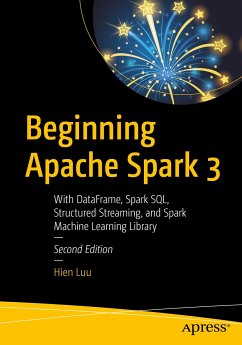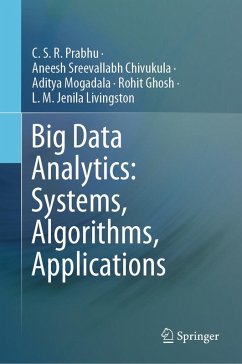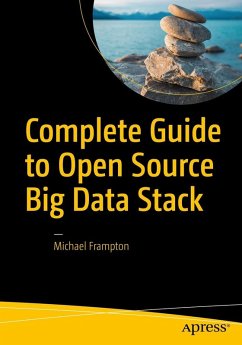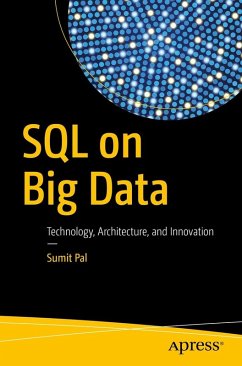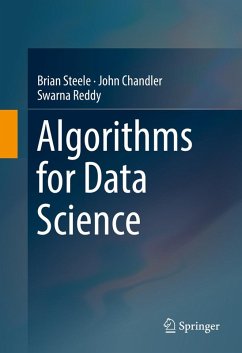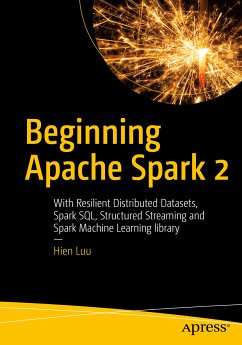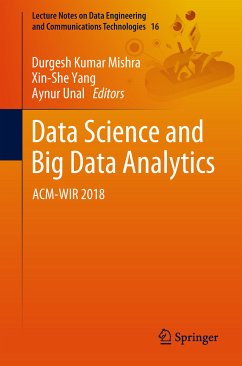
Pro Hadoop Data Analytics (eBook, PDF)
Designing and Building Big Data Systems using the Hadoop Ecosystem
Versandkostenfrei!
Sofort per Download lieferbar
32,95 €
inkl. MwSt.
Weitere Ausgaben:

PAYBACK Punkte
16 °P sammeln!
Learn advanced analytical techniques and leverage existing tool kits to make your analytic applications more powerful, precise, and efficient. This book provides the right combination of architecture, design, and implementation information to create analytical systems that go beyond the basics of classification, clustering, and recommendation.Pro Hadoop Data Analytics emphasizes best practices to ensure coherent, efficient development. A complete example system will be developed using standard third-party components that consist of the tool kits, libraries, visualization and reporting code, as...
Learn advanced analytical techniques and leverage existing tool kits to make your analytic applications more powerful, precise, and efficient. This book provides the right combination of architecture, design, and implementation information to create analytical systems that go beyond the basics of classification, clustering, and recommendation.
Pro Hadoop Data Analytics emphasizes best practices to ensure coherent, efficient development. A complete example system will be developed using standard third-party components that consist of the tool kits, libraries, visualization and reporting code, as well as support glue to provide a working and extensible end-to-end system.
The book also highlights the importance of end-to-end, flexible, configurable, high-performance data pipeline systems with analytical components as well as appropriate visualization results. You'll discover the importance of mix-and-match or hybrid systems, using different analytical components in one application. This hybrid approach will be prominent in the examples.
What You'll Learn
- Build big data analytic systems with the Hadoop ecosystem
- Use libraries, tool kits, and algorithms to make development easier and more effective
- Apply metrics to measure performance and efficiency of components and systems
- Connect to standard relational databases, noSQL data sources, and more
- Follow case studies with example components to create your own systems
Who This Book Is For
Software engineers, architects, and data scientists with an interest in the design and implementation of big data analytical systems using Hadoop, the Hadoop ecosystem, and other associated technologies.
Dieser Download kann aus rechtlichen Gründen nur mit Rechnungsadresse in A, B, BG, CY, CZ, D, DK, EW, E, FIN, F, GR, HR, H, IRL, I, LT, L, LR, M, NL, PL, P, R, S, SLO, SK ausgeliefert werden.
Alle Preise in Euro und inkl. der gesetzl. MwSt. | Innerhalb Deutschlands liefern wir preisgebundene Bücher versandkostenfrei. Weitere Informationen: bitte hier klicken
Support
Bitte wähle dein Anliegen aus:
Rechnungen
Bestellstatus
Retourenschein
Storno



